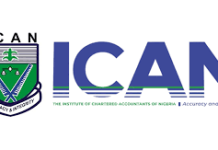The average yield on Nigeria’s Eurobonds rose by 7 basis points as foreign portfolio investors reduced their exposure in the international market, following a decline in sentiment. The shift comes as U.S. inflation surged by 20 basis points to 2.6% in October, casting uncertainty over the Federal Reserve’s potential rate cuts.
The Nigerian Eurobond market experienced sell pressure across short-, medium-, and long-term bonds, resulting in a 0.07% increase in average yield to 9.54%. According to traders, while there was initial buying interest, sentiment soured after the U.S. inflation data release. Core inflation remained steady at 3.3%, with the monthly figure holding at 0.3%, matching September’s rate.
This moderate inflation print supports expectations for a Federal Reserve rate cut next month, with market odds suggesting a 79% probability of a 0.25% cut, as indicated by the CME FedWatch Tool. By late October 2024, average yields rose to 9.58% before interest in Nigeria’s Eurobonds picked up again. In the prior month, Nigeria’s sovereign bond index from S&P/FMDQ returned -0.30%, down from 3.77% in September, according to a report from Meristem Securities Limited.













